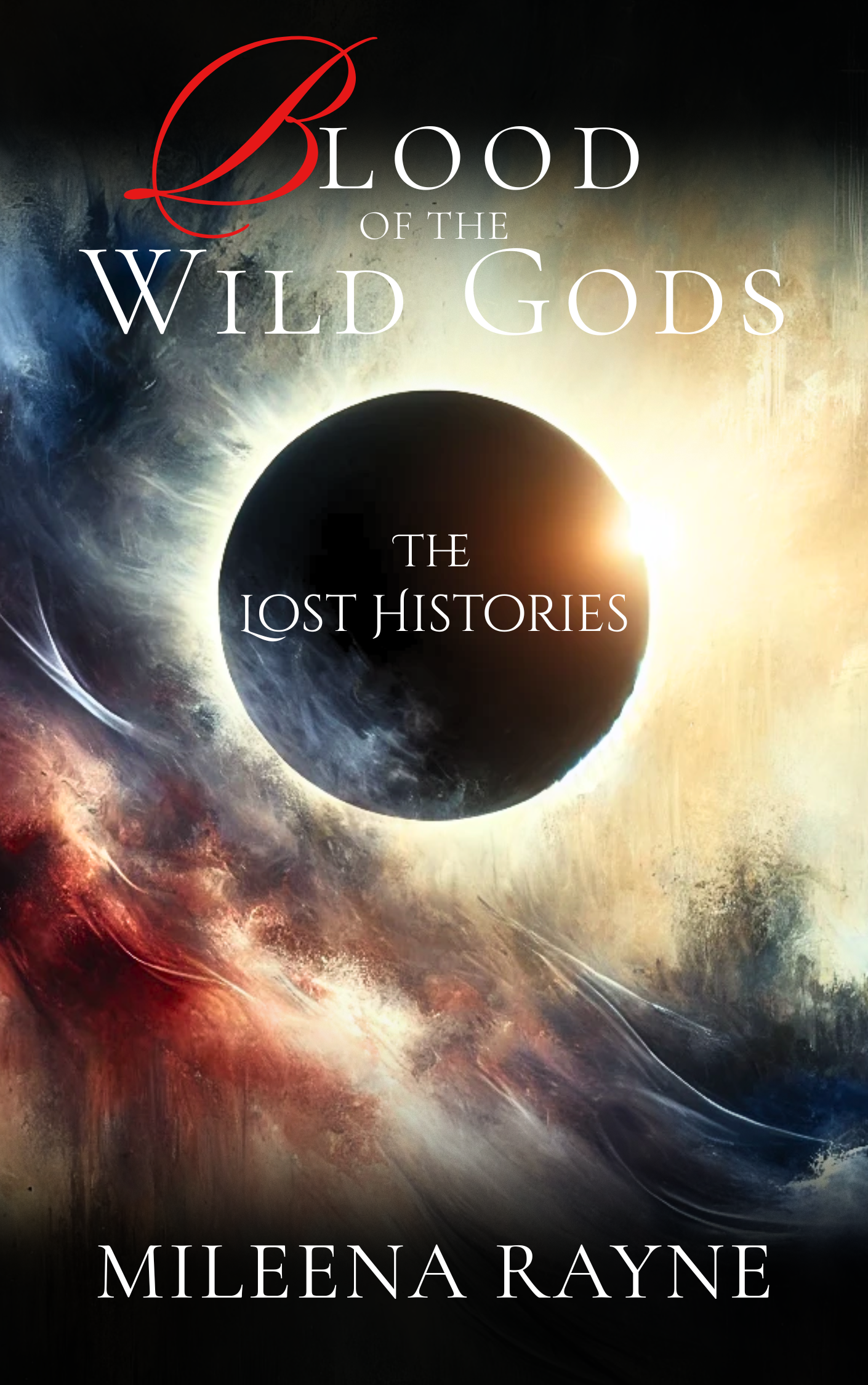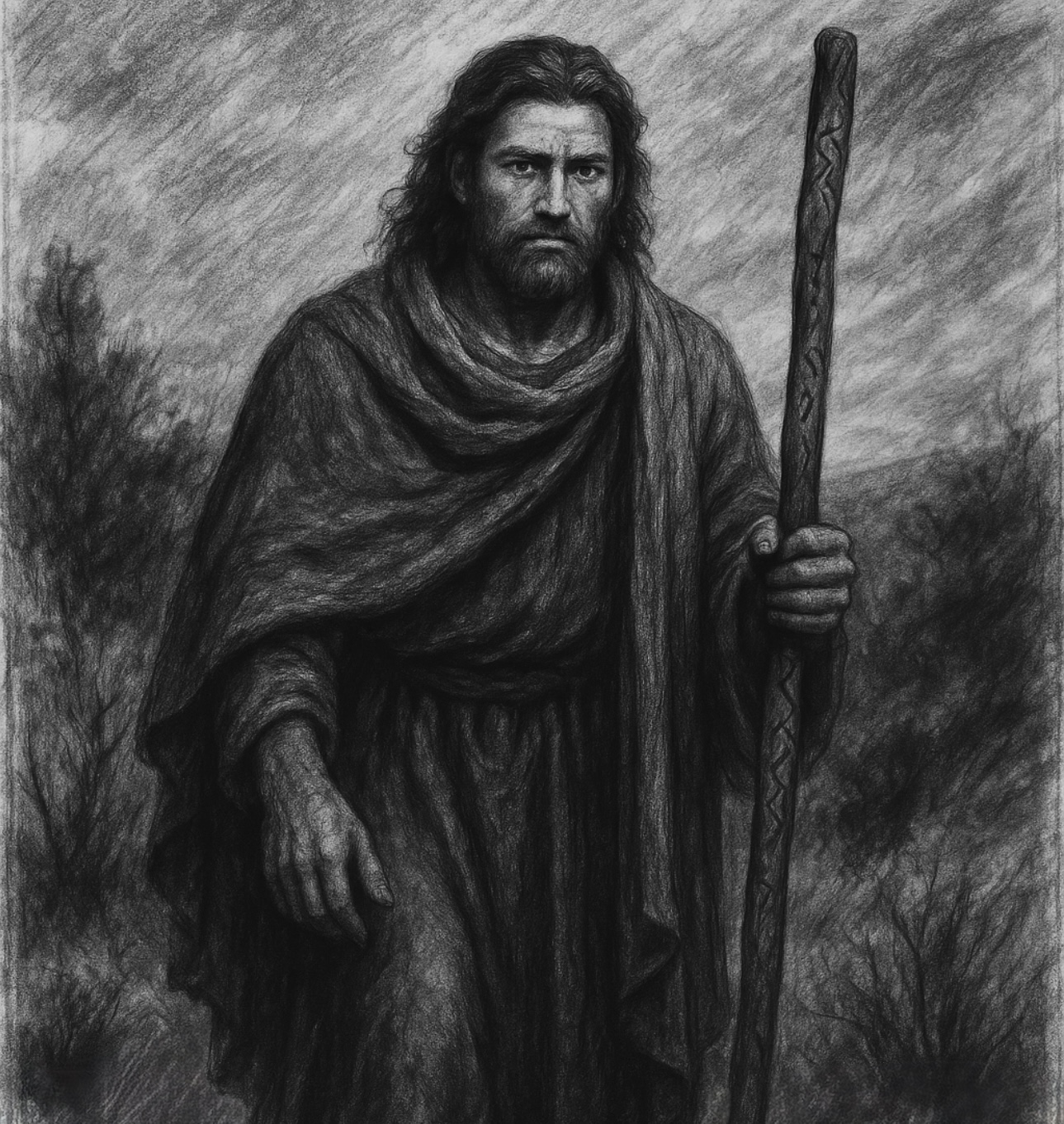Blood of the Wild Gods:
The Lost Histories
Six forgotten tales of divine tragedy and mortal resilience, preserved by one who chose truth over treasure, memory over myth.

Tanneus G'Raja
Born among the ash and ruin of the Godscarred Wastes, Tanneus chose ink over treasure, dedicating his life to preserving truths others would see forgotten.
Discover His Story →The Collection
Within these pages lie stories that shaped our world, though few now remember their truth. Each tale stands alone as a window into the divine heart—beautiful and terrible in equal measure.
From eternal love cursed by jealousy to mercy that damns its giver, from philosophical quests that span millennia to wars that silence the heavens themselves, these are the histories that were meant to be lost.
The Six Tales
Each story reveals a different facet of divine nature and mortal courage. Choose where your journey through these lost histories begins.
Seven Days of Sun
Love eternal, death inevitable
A god cursed to watch his beloved die through endless incarnations. Each lifetime brings seven perfect days before fate claims its due.
The Weaver of Sorrows
Jealousy woven into fate
The origin of the curse that binds eternal lovers—a lunar seer's jealousy transformed into cosmic vengeance that even gods cannot undo.
The God Who Wept
A millennium searching for purity
A philosophical journey of a god who walked among mortals for a thousand years, searching for one human untouched by cruelty.

The Sin of Mercy
When compassion becomes damnation
A god cast from heaven for choosing mercy over divine law. This tale explores the price of compassion in a world that calls it weakness.
The Song of Blood and Stone
How wealth rewrites history
When a goddess walks as a healer, her murder becomes mythology. A tale of how gold can transform villainy into heroism.
The Divine War
Why the gods fell silent
The cataclysmic conflict that shattered heaven and earth, revealing why divine silence might be the greatest mercy of all.
Seven Days of Sun
Love eternal, death inevitable, hope unquenchable
Elodias, the Sun-Touched God, bears a curse unlike any other—to find his beloved Senia in every incarnation, to love her for seven perfect days, and to lose her when the sun sets on the seventh night. Yet neither divine decree nor mortal death can extinguish the flame they carry for each other across the ages.
The Weaver of Sorrows
Divine jealousy spun into eternal tragedy
Before Elodias and Senia were bound by their curse, there was Malritha—the lunar seer whose jealous heart wove fate itself into a weapon. Born during eclipse, raised in shadow, she crafted a curse so perfect that even the gods could not unmake it. This is the story of how divine emotion becomes cosmic law.
The God Who Wept
The search for goodness becomes the discovery of complexity
Thainos descended from heaven with a simple quest: find one human untouched by cruelty. For a thousand years he walked among mortals, witnessing every shade of human nature. What he discovered challenged everything the divine believed about creation, morality, and the nature of goodness itself.

The Sin of Mercy
When divine justice meets human compassion
Azrael was the God of Guardian Angels until the day he chose mercy over divine law. Cast from heaven for killing his corrupted brother, he walks the earth bearing the weight of necessary sin. In a small forest village, he discovers that redemption comes not from divine forgiveness, but from the stubborn love of those who see past the monster to the man.
The Song of Blood and Stone
Truth dies when gold speaks louder than justice
Khali, the ancient Dream Shepherd, chose to walk among mortals as a simple healer. When she caught the eye of both a foreign prince and a jealous princess, divine love became the catalyst for mortal tragedy. This tale reveals how wealth can rewrite history, transforming murder into mythology and villains into heroes.
The Divine War
The price of divine love, the cost of mortal prayer
The final tale reveals the cataclysmic truth: a civil war between gods that nearly unmade reality itself. When the Wild Gods chose to love mortals without restraint, their compassion became catastrophe. Now we understand why divine silence might be the greatest gift—and the heaviest burden—the gods could bear.